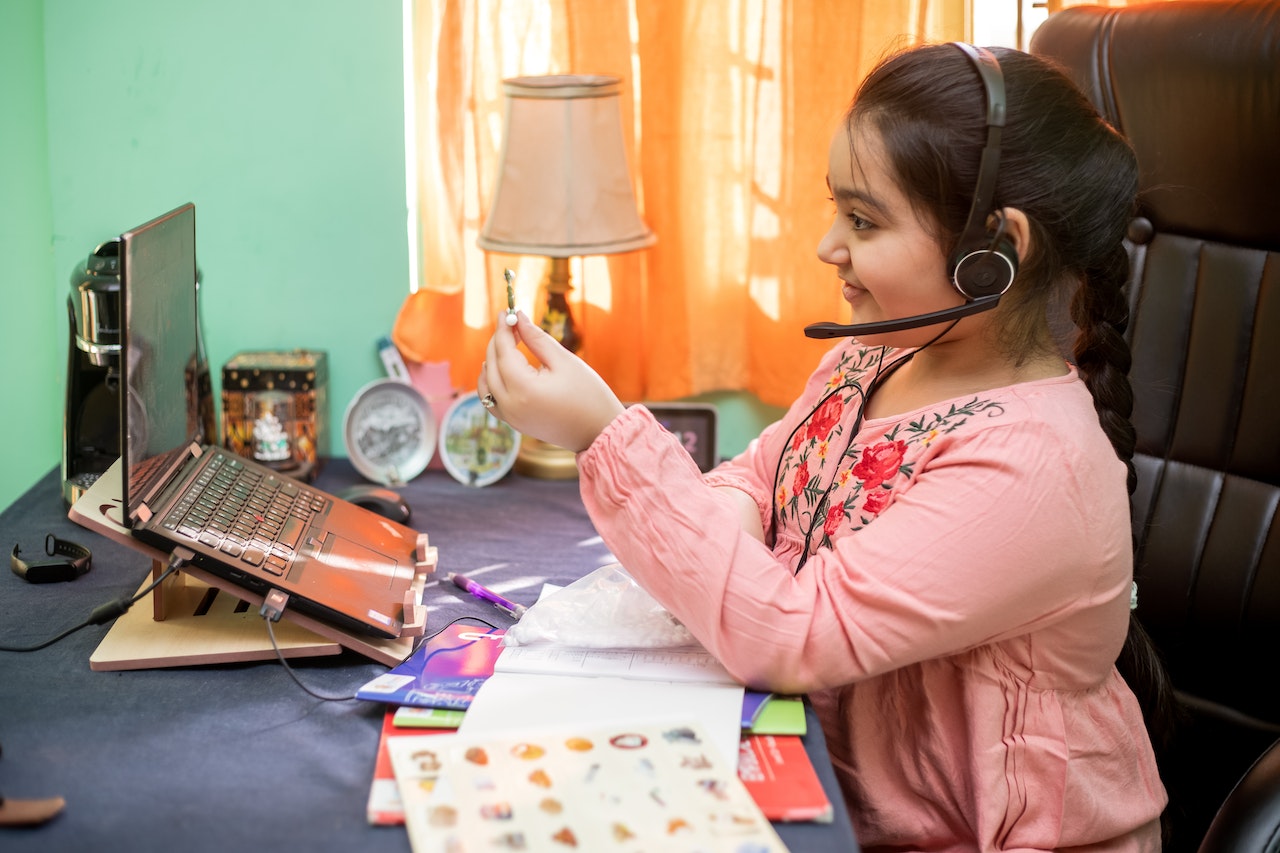The Advantages of Online Learning for Key Stage 2 Students
Online learning is gaining popularity, especially among key stage 2 online students. Today, we’ll delve into the numerous benefits online learning offers children at this stage of their education.
Online learning provides Key Stage 2 students various advantages in this digital age. One of the key advantages is the flexibility it offers regarding scheduling. Students can access their lessons and educational materials anytime, allowing them to learn at their own pace. This flexibility is particularly beneficial for students who require additional time or have unique learning styles.
Moreover, online learning provides an opportunity for personalised education. Students can receive instruction tailored to their needs and abilities by utilising adaptive learning technologies and customised assessments. This customised approach ensures that Key Stage 2 students receive targeted support and can progress comfortably.

Furthermore, online learning platforms frequently integrate interactive elements like videos, quizzes, and educational games to create an engaging learning experience. These resources enhance the learning process and make it more enjoyable for Key Stage 2 students. Interactive activities promote active participation, critical thinking, and problem-solving skills.
Selecting the Ideal Online Resources for Key Stage 2 Homeschooling
When homeschooling Key Stage 2 students, making informed choices about the online resources you use is vital for creating a successful educational experience. This section guides you in selecting the most suitable online resources to support Key Stage 2 homeschooling.
Firstly, it is essential to consider the curriculum. Look for online resources that align with the Key Stage 2 curriculum requirements, ensuring that the content covers the necessary subjects and learning objectives. Many reputable online learning platforms explicitly state their alignment with national curriculum standards.
Secondly, evaluate the quality and credibility of the online resources. Check for reputable sources, such as educational institutions, renowned publishers, or established educational websites. Look for regularly updated resources to ensure they provide accurate and up-to-date information.
Another crucial aspect to assess is the level of interactivity and engagement offered by the online resources. Key Stage 2 students thrive in environments stimulating their curiosity and encouraging active participation. Seek resources incorporating interactive elements such as videos, quizzes, games, and hands-on activities. These features enhance student engagement and make the learning process more enjoyable.
Furthermore, consider the technical requirements and accessibility of the online resources. Ensure that the resources are compatible with the devices you have available for homeschooling. Consider whether they can be accessed offline or require an internet connection. Additionally, check if the resources cater to different learning styles and support students with special educational needs.
Strategies for Achieving Screen Time Balance in Key Stage 2 Online Education
With the increasing prevalence of online education for Key Stage 2 students, establishing a healthy balance between screen time and other activities is essential. This section explores strategies parents and educators can employ to promote screen time balance in Key Stage 2 online education.

Firstly, it’s crucial to set clear and consistent boundaries. Establish specific time limits for screen-based learning activities and communicate these expectations to the students. Encourage breaks and diversify learning experiences with offline activities, such as reading physical books, engaging in hands-on experiments, or pursuing creative projects.
Secondly, prioritise quality over quantity. Select online resources that provide meaningful and educational content. Avoid excessive entertainment-focused platforms or apps that may lead to mindless scrolling. Encourage Key Stage 2 students to engage in purposeful, interactive activities promoting active learning and critical thinking.
Another effective strategy is to incorporate physical activity into the daily routine. Encourage Key Stage 2 students to engage in regular exercise, whether it’s through outdoor play, sports, or structured physical education programmes. Balancing screen time with physical activity helps maintain overall well-being and reduces sedentary behaviour.
Exciting Activities to Foster Key Stage 2 Online Learning
Engaging activities are crucial in enhancing Key Stage 2 learning experiences online. In this section, we’ll explore a range of exciting activities that can foster active participation and boost learning outcomes for Key Stage 2 students in an online education setting.
One captivating activity is taking virtual field trips. Online platforms offer a wealth of resources that allow Key Stage 2 students to explore different parts of the world virtually. They can visit historical sites, famous landmarks or even tour museums. Virtual field trips provide a multi-sensory experience and enable students to develop a deeper understanding of various subjects.
Another interactive activity involves online collaborative projects. Key Stage 2 students can work together on group assignments, research projects, or presentations using collaborative platforms. These projects promote teamwork, communication skills, and working effectively in a virtual environment. Collaborative projects also encourage creativity and critical thinking.
A gamification is a powerful tool for capturing the attention of Key Stage 2 students and enhancing their online learning experience. Incorporating educational games and quizzes into lessons makes learning more enjoyable. Games that offer rewards, progress tracking, and friendly competition can motivate students to participate actively and strive for improvement.
Digital storytelling is another effective activity for enhancing Key Stage 2 learning online. Students can create and share their stories using digital tools. This activity develops their literacy and writing skills while encouraging creativity and self-expression. Digital storytelling enables students to present their knowledge and ideas in a captivating and interactive format.

Practical Approaches to Assess Progress and Achievement in Key Stage 2 Online Education
Assessing progress and achievement is crucial in Key Stage 2 online education to track students’ learning outcomes and ensure their academic growth. This section explores practical approaches and strategies for assessing progress and achievement in online education.
Firstly, formative assessments are valuable tools for ongoing evaluation. They provide immediate feedback to students and educators, enabling them to identify areas of strength and areas that require improvement. Online platforms often offer interactive quizzes, self-assessment activities, and regular progress checks that can be used for formative assessments.
Secondly, consider the use of project-based assessments. Assign Key Stage 2 students real-world tasks or projects that require them to apply their knowledge and skills. These projects can be completed individually or collaboratively, fostering creativity, problem-solving, and critical thinking abilities. Project-based assessments offer a more comprehensive view of students’ understanding and allow them to showcase their abilities beyond traditional tests.
Another practical approach is the use of online portfolios or digital journals. Key Stage 2 students can document their progress, showcase their work, and reflect on their learning journey through digital platforms. Portfolios provide a holistic view of students’ achievements, growth, and learning experiences. They encourage self-reflection and metacognitive skills.
Additionally, consider incorporating peer assessment and self-assessment into the online learning environment. Peer assessment allows students to evaluate and provide feedback on their classmates’ work, promoting collaboration and critical analysis. Self-assessment encourages students to reflect on their strengths, weaknesses, and progress. These assessment methods develop students’ evaluative skills and foster a sense of ownership over their learning.




